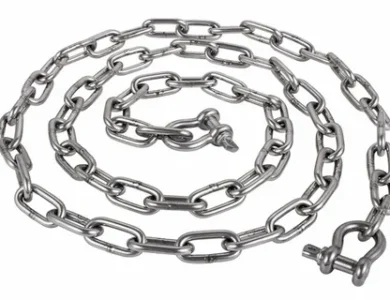Smart Ways to Improve Your Credit Score for Better Financial Opportunities
Your credit score is not just a number but the key to unlocking better financial opportunities. When you apply for a personal loan, home loan or credit card, a strong credit score can improve your chances of approval. It also forms the basis of your credit card eligibility, influencing the limit, interest rate, and features offered by the issuer
Lenders view your credit score as a reflection of your financial discipline and repayment capacity. This article explains the top tips that can help you build a healthier credit profile.
What is Considered a Good Credit Score?
Whether you are applying for a credit card or looking to secure a loan, your credit score plays a crucial role in determining the terms you are offered. Check out what exactly qualifies as a good credit score:
- CIBIL scores range from 300 to 900
- A score of 750 or above is considered a good score
- Higher scores improve your chances of loan approval and credit cards
- Scores below 750 may lead to loan rejection or higher interest rates
- Always aim to keep your score 750 and above, ideally closer to 900
Understanding Credit Score Ranges
Your CIBIL score shows so many things, like how well you manage your credit. Here are different score ranges and what they signify in a detailed table:
| CIBIL Score Range | Meaning |
| 300-599 | Very poor credit health. High chances of loan rejection. |
| 600-649 | Poor credit health. Regular defaults. Low approval chances. |
| 650-699 | Average credit. Might need a guarantor and face high interest rates. |
| 700-749 | Good credit health. High approval chances, but possibly higher interest rates. |
| 750-900 | Excellent credit health. Easy loan approvals with low interest rates. |
Tips to Improve your CIBIL Score
Maintaining a strong CIBIL score is essential for securing better eligibility. Here are some effective ways to improve your credit health:
- Avoid Inquiring for Multiple Loans
Applying for several loans in a short span may reduce your score. Space out your credit applications and borrow only when necessary. - Increase Your Credit Limit
Request a higher credit limit on your credit cards while maintaining controlled spending to lower your credit utilisation ratio. - Maintain a Healthy Credit Utilisation Ratio
Keep your credit usage below 30% of your available limit to demonstrate responsible credit management. - Repay Your Dues Promptly
Always pay your credit card bills and loan EMIs on time, as delayed payments negatively affect your credit score. - Monitor Your Credit Card Activity
Regularly check your credit statements and credit reports to address errors or unauthorised transactions quickly. - Limit Applications for New Credit
Avoid frequent credit applications, as each inquiry slightly lowers your score. - Opt for Longer Loan Tenures
Choose longer repayment periods to ease your EMI burden, helping you stay on top of repayments and preserve your score.
Credit Score Recovery: How Much Time Will It Take?
Rebuilding your credit score is a gradual process. It depends on the severity of past credit issues. Here is what you should know:
- Credit score recovery time depends on the damage and your financial habits
- Negative records stay on your report for 7 to 10 years
- Issues like bankruptcy, loan defaults, and foreclosure take longer to fix
- Minor problems like late payments can improve in a few months to 2 years
- Pay bills on time and lower your credit usage to speed up recovery
- Avoid applying for too many new loans or credit cards
- Full recovery after serious issues may take several years
Why is Good Credit Score Important?
Maintaining a good credit score might seem tough, but it is worth the effort. A high score brings several benefits. It makes your borrowing experience smoother and more affordable.
- It shows you are responsible with loan and credit card repayments
- A good score helps you get loans at lower interest rates with less paperwork a
- It plays a key role in your loan approval decision
- A good credit score speeds up your loan application process
- It increases the chances of getting a longer loan tenure with smaller EMIs
- A good score helps you enjoy a higher credit card limit
Common Mistakes that Can Hurt Your CIBIL Credit Score
Avoid these frequent errors to keep your credit score healthy and improve your chances of loan approvals:
- Missing or delaying loan EMIs and credit card payments affects your score badly
- Applying for multiple credit cards at once lowers your score due to frequent hard inquiries
- Errors or outdated details in your credit report can pull down your score
- Settling debts by paying only part of the dues harms your score and future loan chances
- Closing old credit cards shortens your credit history and increases your credit utilisation ratio
Maintaining a strong credit score is essential for securing loans at better rates with faster approvals. By following simple habits, you can steadily improve your credit health. To manage your credit better and get more value on your spends, consider a feature-rich option like the One Credit Card.
It is a lifetime-free metal card offering features like zero joining fees and 5X rewards on the top two spending categories every month. You can control your card through its OneCard app. A responsible usage of this card can help boost your credit score and bank credit card eligibility.
It offers you a quick digital approval process and EMI options for easy repayments. Apply now and experience the benefits!



